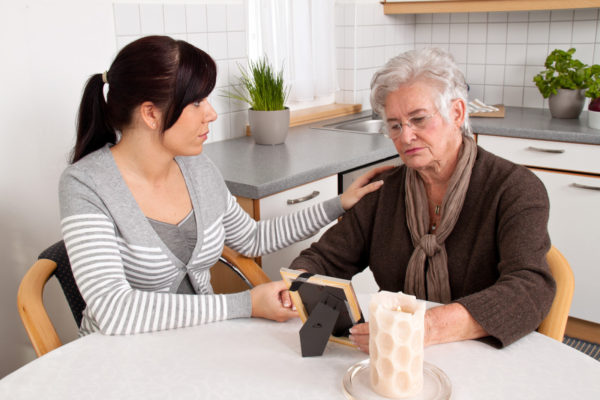
Discussions about senior health often focus on the physical, including topics like exercise, the activities of daily living, incontinence and medications. These are all important topics and they’re very relevant for caregivers as well.
But, with all of this emphasis on the physical, we often neglect the mental components of health.
This is a problem – as mental health challenges can occur at any age. Maintaining good mental well-being is critical, even for seniors who appear outwardly healthy.
According to the World Health Organization:
- 6% of the disabilities present in older adults come from mental and neurological disorders
- Roughly 15% of all adults 60 and above suffer from at least one mental disorder
- The most common mental disorders are depression and dementia, although anxiety is a common problem as well
- Many mental health problems are overlooked, including self-harm and substance use disorders
Mental health disorders are particularly significant for seniors, as many will live in isolation. Others may have lost a loved one or simply feel that there is little purpose to their lives.
There is also a stigma surrounding mental health.
- Many people don’t want to admit there is something wrong and refuse to seek help as a consequence
- Seniors may be especially stubborn, partly because mental health wasn’t heavily focused on when they were young
- Some people will try to justify challenges and symptoms, convincing themselves that there is nothing wrong
The In Home Counseling Angle
Counseling can play a large role in mental health, even for people with no mental health problems. It gives individuals a chance to understand themselves better and to talk about things that they wouldn’t have otherwise.
On site counseling is the most common approach – but it can be scary and may be impractical as well. For example, some seniors struggle to leave the house. Others may find that going to a counseling session seems clinical and nerve-wracking.
Counseling in the home environment can help to put people at ease. It can also feel more like a conversation with a friend, which is useful for anyone resistant to the idea.
There are many such services out there. Most are local, so you’ll need to find out what is available in your area. They’ll often give special consideration to anyone who is high-risk or home-bound. However, most such services recognize that some seniors may not be able to travel to appointments for emotional reasons, not practical ones.
You can search online to find such services. Local senior centers and agencies that work with seniors may also be able to point you towards some options.
The list below highlights some of the services currently out there. But, there are hundreds (or thousands) of others too.
- Counseling Services for Older Adults from Crisis Support Services of Alameda County
- Integrated Behavioral Health Services from Institute on Aging
If there are no suitable services in your area, you may be able to find a phone-based option instead.
If you’re looking for other ways to improve quality of life, check out our post on Practical Ways to Make Caregiving Easier. This highlights various services and tools that can help reduce strain and stress for you and your family member. Many of the options apply to part-time caregivers as well and for seniors who live on their own.
Feeling Overwhelmed?
Check out our Caregiving Consulting service for personalized support and guidance.

It’s good to learn that depression is one of the common causes of mental disorders among the elderly and that it can be resolved with the help of senior counseling. The reason I brought this up is that my grandma is having a hard time coping with the recent death of our grandfather that she is barely eating for days now. We try cheering her up but she only ends up going to her room, staring at the window. We know for sure that we definitely need help in her condition and I’m glad you brought this up. In this case, we’ll find a way to look for an expert senior counselor who can help our grandmother cope while keeping herself healthy.
Counseling can certainly help. It’s particularly relevant in situations like yours, where it is situation-specific depression. Counseling won’t necessarily resolve depression but it is a valuable tool and teaches people how to move forward.